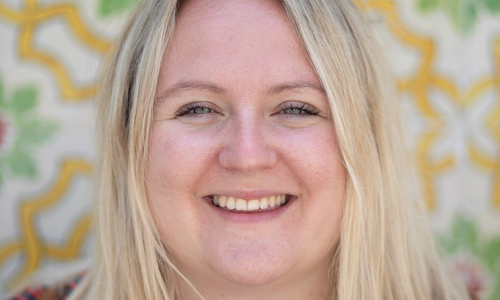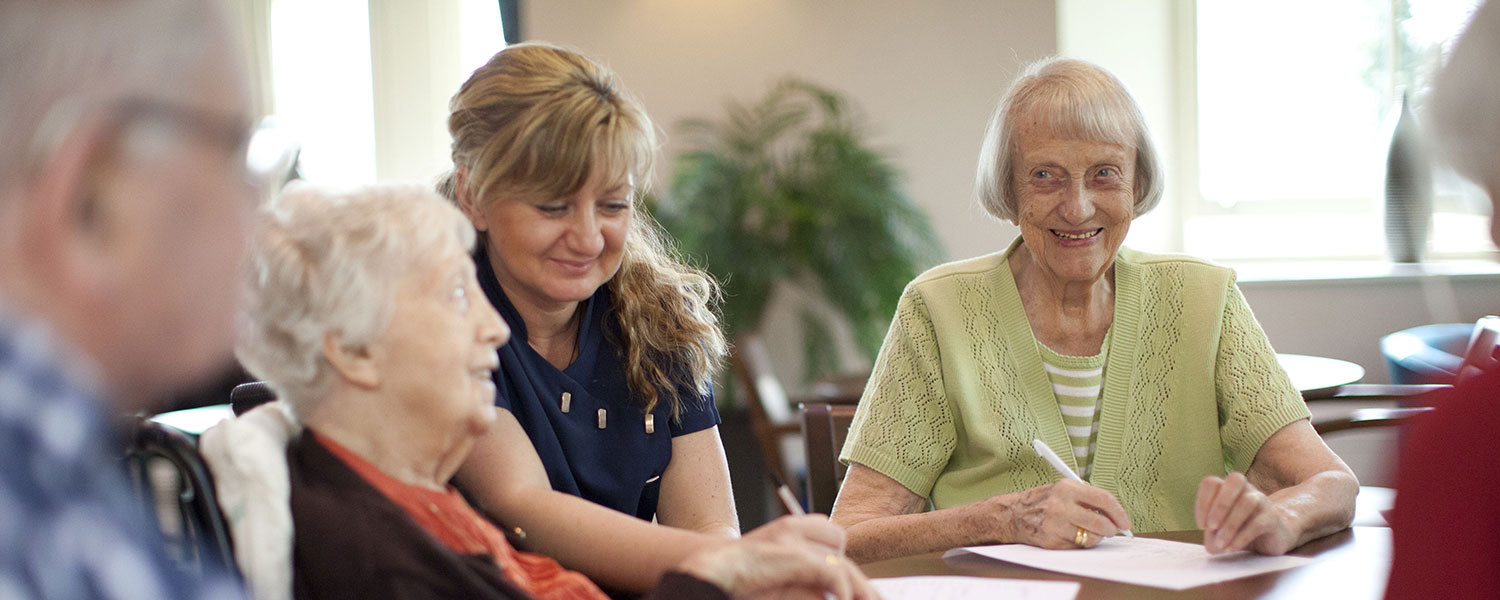Age UK campaigns tirelessly to protect the interests of older people. From helping to access food, cash and good quality health and social care, to making sure the Domestic Abuse Bill works for older victims and survivors, this works has never been more important than right now.
So, too, is ensuring decision-makers in the Government, health sector and care sector know the impact the coronavirus pandemic is having on older people and what they must to do help.
Here, members of Age UK’s Influencing division outline what we’re doing to put older people at the front and centre of the response to the coronavirus outbreak.
Making shopping more accessible
Senior Campaigns Manager, Eorann Lean, has been working closely with the Department for Environment, Food and Rural Affairs to tackle one of the biggest concerns older people have during the coronavirus (COVID-19) outbreak.

“Access to food is a new area for us but it was clear from the huge amount of calls coming to our Advice Line and the work of our local Age UKs that this is the top concern for older people. People are rightly worried about how they can get food during lockdown and keep themselves safe.
"Alongside other charities we told the Government and supermarkets that there needed to be an increase in access to home delivery for older people and those with disabilites who are struggling including an offline option, secure methods for volunteers or friends to buy shopping for others and help for those who didn’t have others to shop for them and didn’t know where to turn.
"Many supermarkets have now listened and made a huge effort to support people to get their shopping safely; there are now ways for friends and family to order and pay for someone else’s shopping and telephone lines for offline ordering. Government measures such as food parcels for extremely vulnerable people are also welcome but, we know that more still needs to be done including access to more home delivery slots.
"That’s why my colleagues and I are working with the Department for Environment, Food and Rural Affairs to get them to join up services and coordinate so that support reaches those who need it most, especially those who are isolated and not online.”
 Helping older people access good quality healthcare
Helping older people access good quality healthcare
Policy Manager, Charlotte Lynch, has been working with the Government and the health sector to make sure older people’s health needs are properly addressed, without blanket assumptions, during this worrying time.
“Coronavirus is having a disproportionate impact on older people’s health. Not only are older people at increased risk of severe implications if they contract coronavirus, but they are most likely to have been affected by surgery and treatment being postponed. At the same time, we know that sustained periods of social distancing or shielding is having a negative impact on many older people’s mental health.
"My colleagues and I are working hard to ensure that older people get fair access to treatment and healthcare, both now and in the future. Age UK has been vocal in calling out discrimination and blanket health policies based on age, such as restricting treatment or asking older people to sign do not attempt resuscitation orders. Following pressure from Age UK and others these policies have largely been withdrawn.
"We know that many older people are concerned that they may be asked to stay inside for longer periods, after restrictions have been lifted for the general population. We are calling out compulsory approaches based on age and urging the Government to recognise that older people can make their own decisions, based on best available evidence, about what is the best choice for them.”
 Putting social care at the top of the agenda
Putting social care at the top of the agenda
Policy Manager, Daisy Cooney, has been working with the Government and the care sector so that social care isn’t forgotten about during the coronavirus crisis.
“Social care is, as always, a top priority for us during the pandemic. Access to good care is an essential part of living well in later life, and is now more important than ever. Sadly, as we’ve all seen in the news, there have been many distressing stories about the experiences of older people living in care homes and receiving care at home. I have been working hard to raise our serious concerns about the lack of PPE and testing in all parts of the care system.
"I know how incredibly important it is to make sure the voices of older people are heard, so we are closely monitoring what is happening in care around the country and listening to the experiences of people who receive and provide social care. This means we can tell the Government and social care sector about measures, including access to emergency funding, that need to be taken to keep people safe right now and in the future. We will do everything in our power to campaign so that this can never happen again.”
How has care changed?
Share your experiences of how care has changed in the light of coronavirus.
Access to cash
Senior Policy Manager, Chris Brooks, has been contacting the financial regulators, the banks and the Post Office to talk about problems accessing cash facing older people.
“Older people are often particularly reliant on cash – more than half of over 70s do not use the internet so online banking just isn’t a option - we have received many calls expressing concern about how they can access cash during the pandemic, given many have been advised to stay largely or exclusively indoors. Many older people found it hard to access cash even before the COVID-19 outbreak and we remain concerned that the current situation will make this extremely difficult or even impossible for significant numbers.

"While we welcome the initiatives that some banks and the Post Office are undertaking, they don’t solve the problem of getting cash for all older people. We are concerned that many of the hardest to reach older people - someone who lives alone and has a cognitive impairment, for example - may be unable to use these new services. So we will continue to put pressure on the banks, the Post Office and regulator to ensure that older people can access cash, through non-digital means, when they need it.”
Helping MPs hear the issues that matter to older people locally and nationally

Senior Public Affairs Manager, Rob Henderson, has been working closely with MPs up and down the country to help them reach out to their local Age UK, support older constituents and put older people at the top of the political agenda.
“I’ve been working closely with MPs so they have the information and resources they need to help older constituents and their local Age UKs. My colleagues and I send them with a weekly update with information on safeguarding, volunteering and health advice. Age UK has also created a brand new information hub just for MPs to give them a few time- and cost-effective ideas on how they can help older people in their constituency.
"Another priority issue is the Domestic Abuse Bill, which is currently making its way through parliament. The coronavirus outbreak has meant that many older people are being asked to stay at home at all times and avoid face-to-face contact until at least the end of June 2020. There is a risk that this further isolates those older people who are suffering domestic abuse. I’ve been working hard to make sure that the needs of older people are addressed in the Bill.”
Behind the Headlines: Older people’s lives during the pandemic
From loneliness to access to cash, shopping to support needs, older people have told us about the issues affecting them during the coronavirus pandemic.

